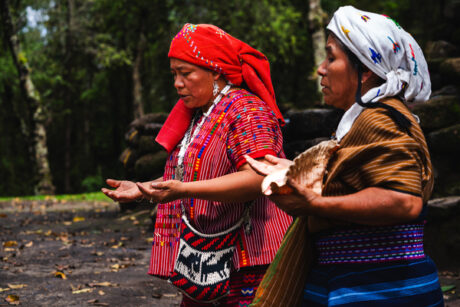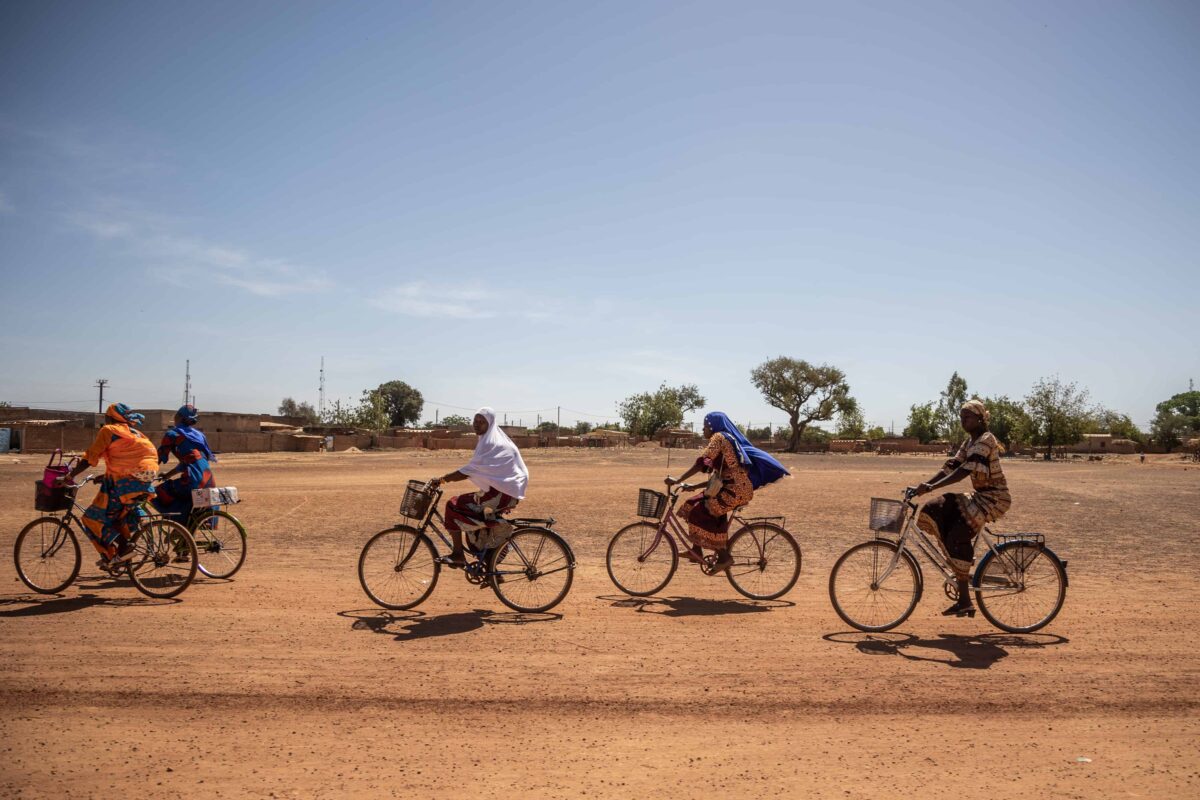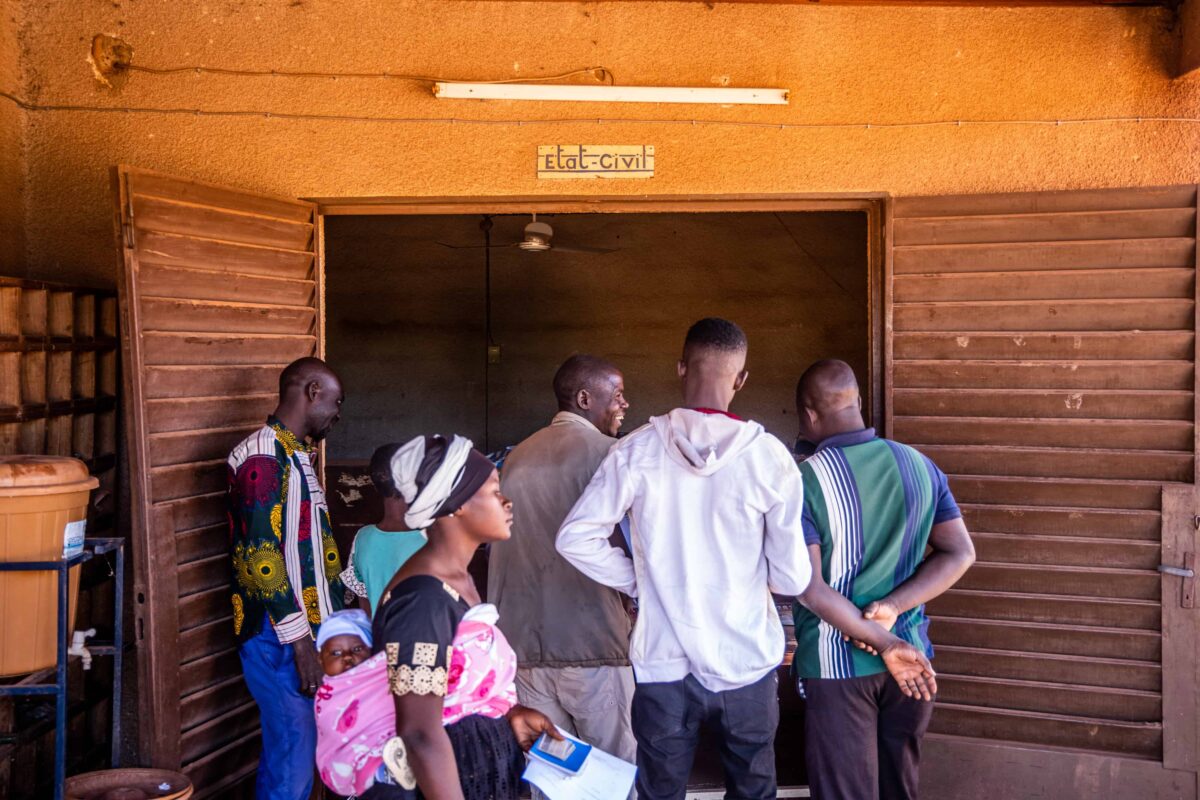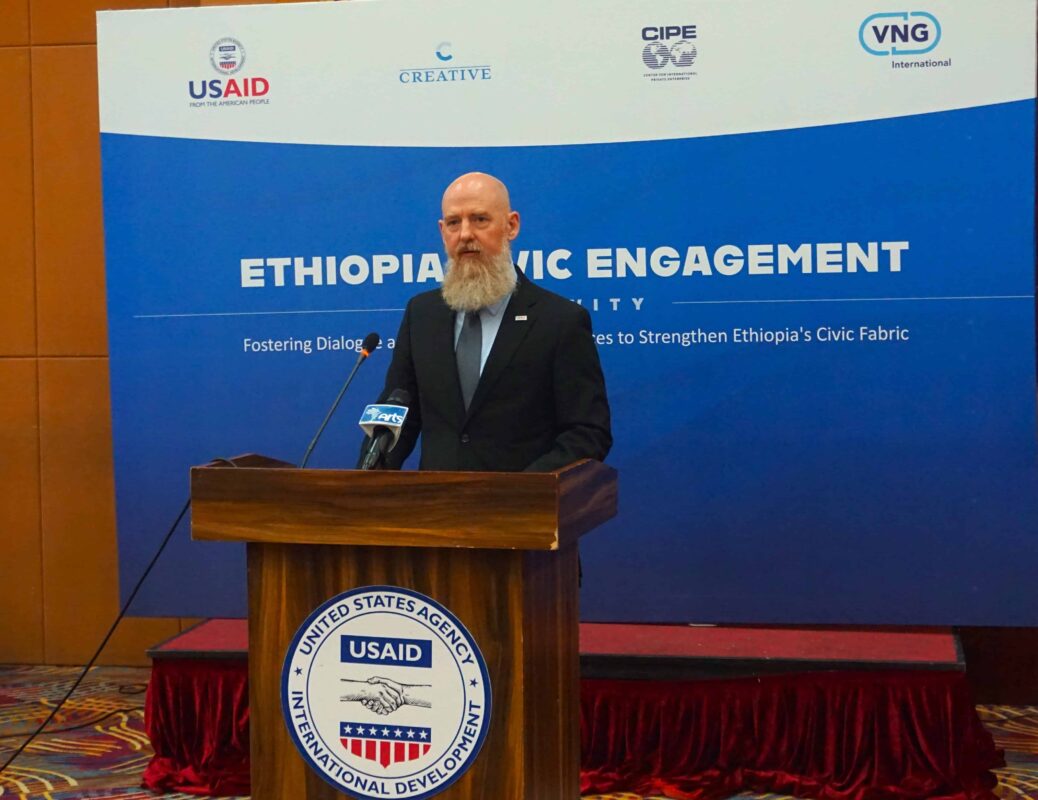Inclusion of persons with disabilities is crucial for fostering equitable and democratic societies, ensuring that all individuals can contribute to and benefit from community development and decision-making processes. By breaking down barriers and providing accessible platforms for engagement, we can promote meaningful participation in civic life and enhance the resilience and inclusivity of communities.
The United States Institute of Peace recently organized a discussion featuring U.S. Special Advisor on International Disability Rights Sara Minkara. The conversation, titled “Disability Rights and Peacebuilding: A Playbook for Better Inclusion” focused on how the United States can lead a disability-inclusive response to conflict and highlighted the Disability Rights in U.S. Foreign Policy Playbook, which was recently launched by the U.S. Département d'État.
Lors de l'événement, Minkara emphasized the need to “break down barriers, so we can bring persons with disabilities to the table.”
Identifying and dismantling barriers to foster inclusion for persons with disability and promoting meaningful engagement with persons with disabilities as key contributors to peace, security and development are two of the main objectives highlighted in the recently released USAID Disability Policy, titled “Nothing Without Us.»
Dans le cadre du programme financé par l'USAID Ethiopia Civic Engagement (ECE) Activité, Creative Associates International and its partners are using collective impact to foster the inclusion and participation of persons with disabilities in the process of civic engagement for peaceful, democratic and sustainable change. Collective impact is when community members, organizations and institutions collaborate to achieve common goals by learning, coordinating and combining their efforts for change.
Persons with disabilities and civic engagement in Ethiopia
While data on the exact percentage of persons with disabilities as a share of the general population in Ethiopia are largely unreliable, un 2023 report by UNHCR Ethiopia on the state of disability inclusion in Ethiopian refugee and IDP settings stated that an estimated 7.8 million persons with disabilities lived in Ethiopia as of 2016 (9.3 pour cent de la population totale).
People with disabilities in Ethiopia are disproportionately affected by the impacts of conflict, underdevelopment and the inability to contribute to decision-making in their communities.
In line with its objective to strengthen the civic fabric of Ethiopia by fostering meaningful engagement of marginalized populations in the process of democratic governance, ECE is providing platforms for persons with disabilities to engage in coalition building and collective impact with other civic actors in Ethiopia by supporting the establishment and operation of Civic Incubation Centers in various key locations, as well as developing issue-based clusters to address critical governance and service delivery issues like fiscal transparency and accountability, peaceful coexistence, roads and water supply, among others priorities, across the country.
Civic Incubation Centers as platforms for promoting inclusion of persons with disabilities in civic engagement
The ECE Civic Incubation Centers in Addis Ababa, Dessie and Dire Dawa serve as common spaces for all civic actors, including persons with disabilities, to convene, dialogue and collaborate on critical issues affecting their communities.
The centers are fully equipped with resources and tools that facilitate physical accessibility and communication for persons with disabilities. These include ramps, wheelchair-accessible office doors, remodeled toilets, computers equipped with Nonvisual Desktop Access software, Job Access with Speech (JAWS) text-to-speech software, braille materials and sign language translation services.
Access to these resources has enabled persons with disabilities to fully participate in dialogues on priority issues. Par exemple, the Dessie Civic Incubation Center, which is the newest of the three ECE Civic Incubation Centers, has welcomed 17 participants with disabilities (six women and 11 hommes) in various civic events and dialogues since the official launch of the center on November 19, 2024.

“We often face obstacles like long distances and limited internet access, making it hard to find information. This center will help overcome those challenges,” says Engeda Gebresillase, President of the Dessie City Persons with Disabilities Federation. “I have used the JAWS software here, which read the programs to me, making it easier to navigate. This center is a breakthrough for including persons with disabilities in services and programs. Précédemment, inclusion efforts were fragmented, but this initiative sets a strong example for collaboration and meaningful engagement.”
Having access to safe and conducive spaces to participate in civic engagement dialogues has also enabled persons with disabilities to amplify their voices on issues of importance to them and their communities.
Solomon Teshome is a member of the Dire Dawa Persons with Disabilities Association and a notable advocate for persons with disabilities in his community. Solomon participated in an ECE activity for the Dire Dawa Fiscal Transparency and Accountability cluster where organizations solved complex problems by experimenting with solutions, learning from the results and adjusting as they go. Rather than planning everything upfront, participants improved their problem-solving ability through continuous, step-by-step learning. The cluster is led by the Dire Dawa Civil Society Network, and Teshome took the opportunity to discuss the importance of including marginalized voices, especially those of persons with disabilities on matters related to public financial management.

« Pour la première fois, I felt like my voice was important,” Teshome says. “I was able to share the challenges we face and stress the importance of having our concerns acknowledged in fiscal transparency and accountability issues. We now feel more informed and involved in governance. Our collective voice can no longer be ignored.”
Including persons with disabilities at all levels of programming continues to be a priority for U.S. government development assistance interventions, as evidenced by the priorities highlighted in the “Disability Rights in U.S. Foreign Policy Playbook,” and overall mandate of the Special Advisor on International Disability Rights. These Civic Incubation Centers offer a tremendous platform for ECE to include persons with disabilities and elevate their voices and concerns on critical governance issues affecting their communities.
Kelfala Lebbie is the Senior Project Manager for the USAID-funded Ethiopia Civic Engagement activity and Vietnam Local Capacity Development activity at Creative.



